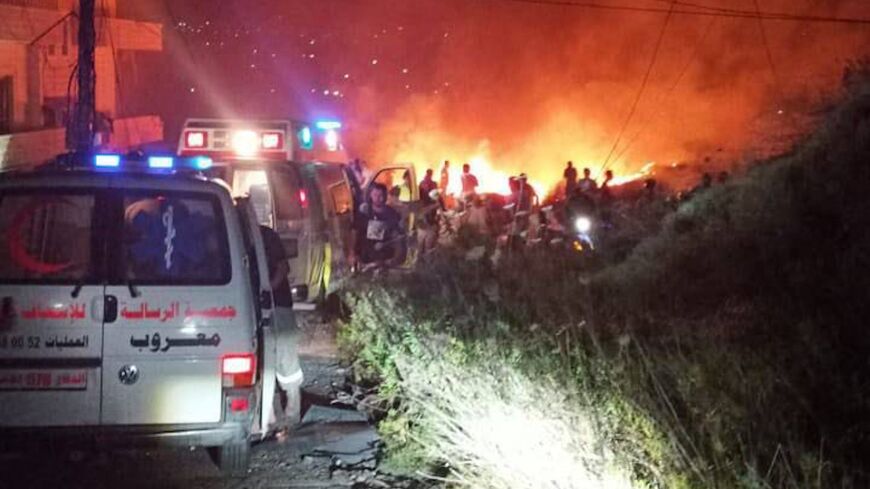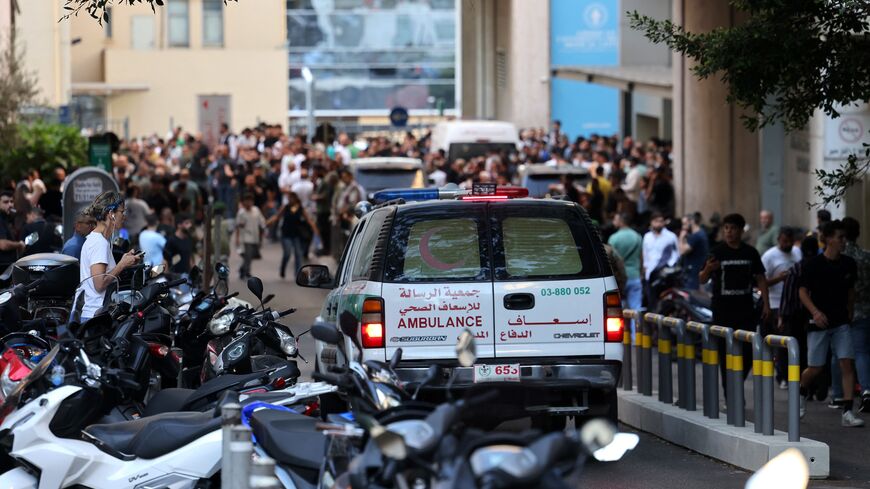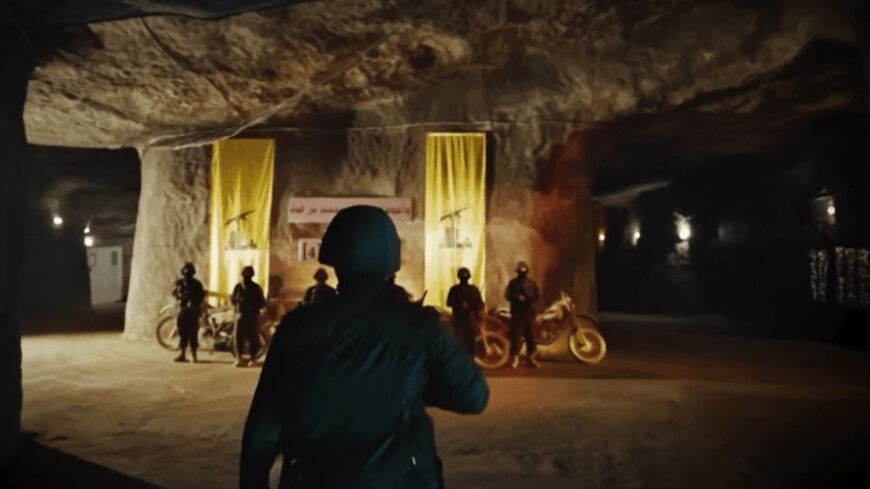Israel intensifies Lebanon strikes, kills Hezbollah commander, hits warehouse
Israel struck Hezbollah weapons in the Bekaa Valley, causing large explosions amid fears of an all-out war.

Israel said it killed a prominent Hezbollah member on Monday evening, following strikes against weapons warehouse for the Iran-backed group deep inside Lebanon.
The Israeli government said in a post on X that its fighter jets struck Hezbollah weapons storage facilities in eastern Lebanon’s Bekaa Valley. “Following the strikes, secondary explosions were identified, indicating the presence of large amounts of weapons in the facilities struck,” they said.
Israel added that its air force killed Hussein Ali Hussein in separate strikes in south Lebanon. The Israeli authorities identified him as "significant terrorist" in Hezbollah’s rocket and missile unit based in southern Lebanon, close to the Israeli border. Hussein was in the Deir Qanoun area of southern Lebanon at the time of the strike, the Israeli official readout said.
Hezbollah confirmed Hussein’s death later Monday evening, referring to him as Hussein Ali Hussein Suleiman, also known as Malak. The group said Hussein was born in 1988 in the village of Tarbikha, presently located in Israel just over the Lebanese border, and lived in Deir Qanoun. Hussein was “martyred on the way to Jerusalem,” Hezbollah said, according to its TV outlet, Al-Manar.
Lebanon’s official National News Agency reported that eight people were injured in the Israeli strike on the warehouse in Bekaa. Citing the Health Ministry, the agency said six Lebanese citizens, a 5-year-old Syrian girl and a 15-year-old Syrian girl were being treated in the hospital.
The outlet reported at around 8:50 p.m. local time (1:50 p.m. ET) that three Israeli raids occurred in the Baalbek district of Bekaa. The first occurred in Saraain El Tahta, the second outside of Nabi Chit and the third between Tamnine El Tahta and Qsarnaba, according to the agency.
Al-Manar reported Israeli raids in the same area, citing its correspondent.
Video on social media showed projectiles near the site of the explosion, with some claiming that an arms depot was hit.
Report: Israel strikes arms depots deep in east Lebanon (looks like a missile warehouse, look at the missiles flying) pic.twitter.com/JT5h0zniv7
— Amichai Stein (@AmichaiStein1) August 19, 2024
Reuters reporter Timour Azhari said in a post on X that one of the videos showed “what appear to be secondary explosions from munitions.”
Series of Israeli airstrikes reported near Baalbek, Lebanon.
— Timour Azhari (@timourazhari) August 19, 2024
With what appear to be secondary explosions from munitions. pic.twitter.com/adlXZUuGGx
The National News Agency reported that explosions were heard in the Bekaa Valley as a result of the strikes.
Hezbollah has a strong military presence in Bekaa. The area is located around 100 kilometers (62 miles) from the Israeli border.
At around 9:30 p.m. local time (2:30 p.m. ET), the National News Agency reported that “enemy warplanes” fired two missiles at an area outside of Mansouri in southern Lebanon. Al-Manar said its correspondent reported a “Zionist raid” in the area at the time.
Israeli authorities instructed some communities in the north, including Yehiam and Ein Ya’akov, to close to their shelters, Israel’s public broadcaster, Kan, reported on Monday evening.
Why it matters: Israel and Hezbollah have been engaged in nearly daily cross-border exchanges since the Iran-backed group first fired missiles at Israel on Oct. 8, a day after the start of the Gaza war. The situation has escalated in recent weeks, especially following the Israeli strike that killed senior Hezbollah military official Fuad Shukr on July 30.
Hezbollah leader Hassan Nasrallah has repeatedly vowed to retaliate against Israel for Shukr’s death.
The incident has raised fears of an all-out war developing between Israel and Hezbollah in Lebanon. International airlines including Lufthansa and Aegean have suspended flights to Beirut in recent weeks over the situation.
The region is further on edge following the assassination of Hamas political leader Ismail Haniyeh in Tehran on July 31, the day after Shukr’s death. Hamas blamed Israel for his death, though the Israeli government has not commented. Iran has said on numerous occasions that it will retaliate against Israel for Haniyeh’s death.
Iran launched an unprecedented direct attack on Israel in April, following an Israeli strike on the Iranian Consulate in Damascus that killed several high-ranking Islamic Revolutionary Guard Corps members.
Know more: US Secretary of State Antony Blinken told reporters in Israel on Monday that Prime Minister Benjamin Netanyahu has accepted a new Gaza cease-fire proposal and called on Hamas to do the same. Those talks are expected to resume in Egypt on Wednesday.
Al-Monitor’s Ben Caspit wrote last week that progress in the cease-fire talks could hold off an Iranian attack on Israel.






![🚨 [#Picture] Photos of the aftermath of the strike on Haret Hreik sent to L'Orient Today by Hassan Chaitani, local resident in the area.](/sites/default/files/styles/article_header/public/2024-07/Dahiye.jpeg?h=08b866d1&itok=wVXnDv4s)
